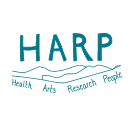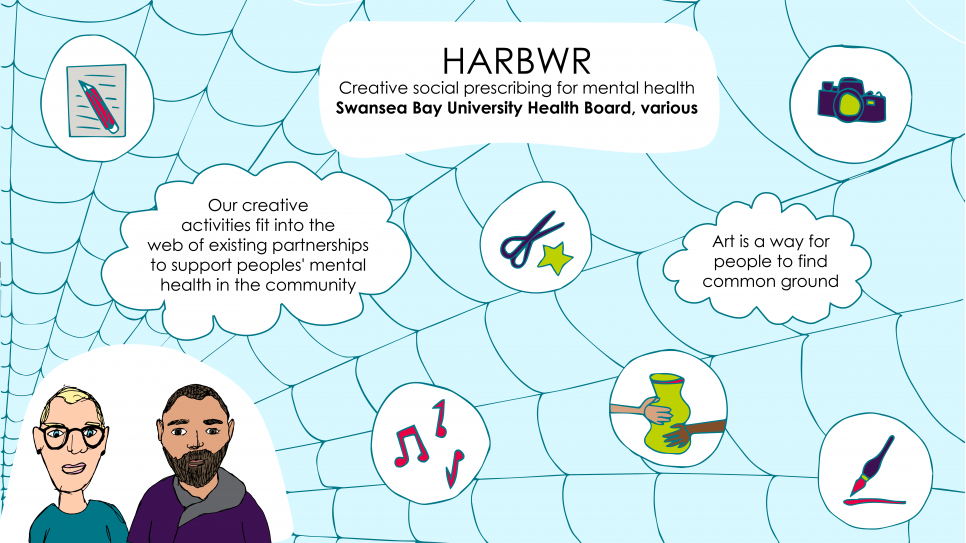Johan B. Skre, Arts-on-Prescription Manager for Swansea Bay University Health Board, shares learnings from the HARBWR project…
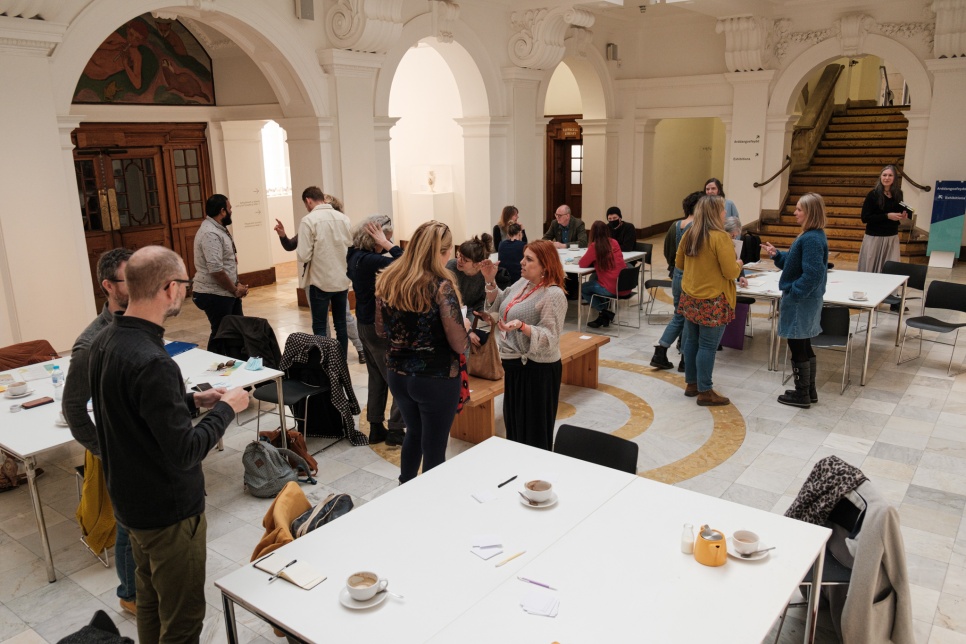
The COVID-19 pandemic and resulting social distancing measures put huge additional strain and demand on mental health services across Wales, including in Swansea.
Even before the virus arrived there were long waiting lists for assessments, mental health charities and community services were operating beyond capacity, and services were stretched.
With support from HARP, in spring 2021, Swansea Bay University Health Board joined forces with local artists, art organisations, the third sector, and local authorities seeking to address some of these challenges through HARBWR - a new arts-on-prescription service.
Our referral system aimed to direct people experiencing mild to moderate mental health problems, or feelings of loneliness and isolation, to a range of existing community art activities.
These activities include Dance to Health, a programme created by Aesop Arts and Society to help improve or maintain people’s strength and balance and prevent falls; a wellbeing choir; and Rengarific, a collaborative practice that sees people create chains of artworks (‘rengas’) inspired by each other's work (‘riffs’). Rengarific was developed and tested through the HARP Sprint in Summer 2020.
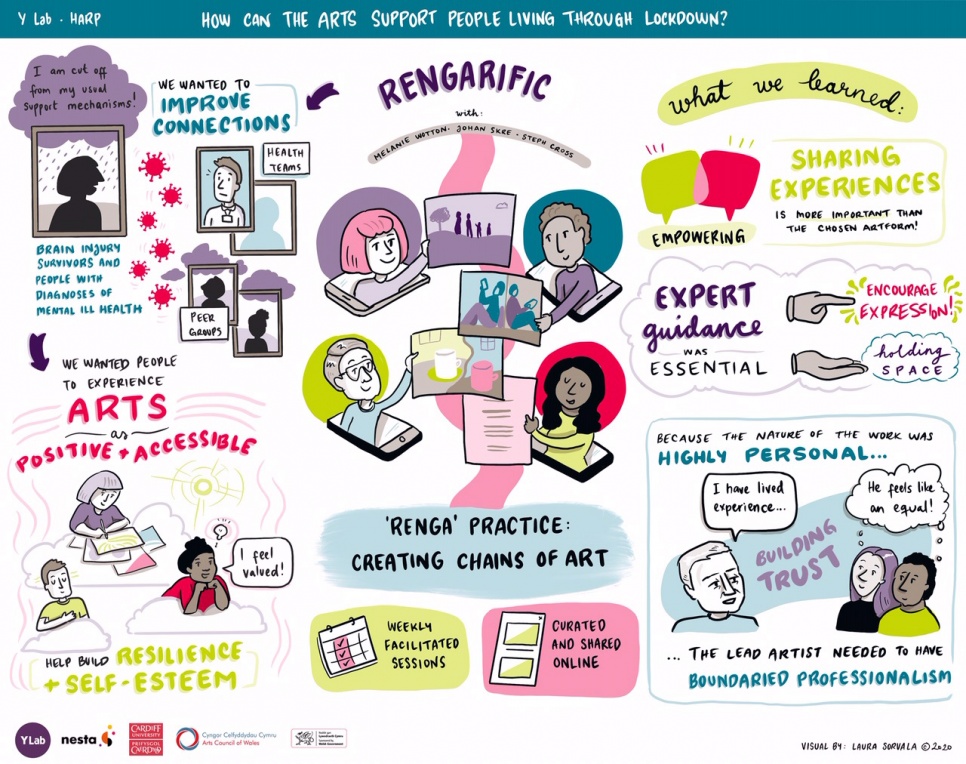
Overcoming early referral challenges
To support referrals, we connected with the health board’s new-in-post social prescribers and launched a website.
While referrals did arrive, many initially had needs that required a higher level of support than we could offer.
So, to reach people at the right point in their health journey we looked outside the health board too, recognising that providing early support to people in the community experiencing isolation or mild mental health challenges could prevent them from needing more extensive care later.
We connected with a range of partners, including local area coordinators; social prescribers in Neath Port Talbot; Swansea Carers Centre, which supports tens of thousands of unpaid carers and former carers; Swansea City of Sanctuary, a movement supporting asylum-seekers and refugees; and GP surgeries.
We have since supported 25 people to attend Rengarific groups, as well as more than 50 people through wellbeing choir sessions, with up to 70 people referred to Dance to Health.
One Rengarific participant who had been struggling with grief told us she was able to identify and express how she was feeling through the conversations she had with strangers about photography and art. And both the choir and dance sessions continue to have positive social and physical effects on those attending.
We are also working in partnership with the University of South Wales and Wales School for Social Prescribing Research to evaluate the work, focusing on whether the arts activities improve mental health and wellbeing, and prevent the need for further NHS care.
Sharing lessons learned
Despite working within the health board, delivering this new model of care during a pandemic provided a plethora of additional learnings to take forward.
The NHS is a large organisation with administrative processes that take time to learn and navigate, and the pandemic added another layer of complexity. Identifying those who can champion your work and guide you through those decision-making systems is key.
While we did create some new arts activities for this project, we also identified community activities that were well run and documented to be beneficial and safe for people with the conditions we were targeting, connected them to relevant referrers in the health system, and supported them to increase capacity or reach. In the case of Swansea’s well-being choir, for example, we covered the cost of their room hire and five referral spots.
As with any treatment or intervention, health boards require you to prove why an arts activity is worthwhile and how it benefits patients. So taking this approach has been time-effective and supported existing community initiatives during a difficult time.
Securing support from, and developing trusted relationships with and between, community partners is also important and worked well.
Building Swansea’s arts and health future
Our ambition is for an arts-on-prescription model to be embedded in the health board and to secure the necessary support and funding to continue our project beyond HARP.
Since the project setup took longer than anticipated, we are carrying some HARP funding forward to offer activities through our new referral pathways. Long term, we aim to develop a service proposal for the work to be partially funded by the Health Board.
Meetings with local GP surgeries are planned to share more information about the service and kickstart referrals from their practices.
We have started a cross-disciplinary arts and health forum in collaboration with the Wales Arts, Health and Wellbeing Network. The first meeting was held in March 2022 at Glynn Vivian Art Gallery in Swansea. It brought arts projects together with community connectors, social prescribers and health board representatives to develop cross-disciplinary understanding and new partnerships. It was hugely beneficial to our sector and we aim to hold them quarterly.
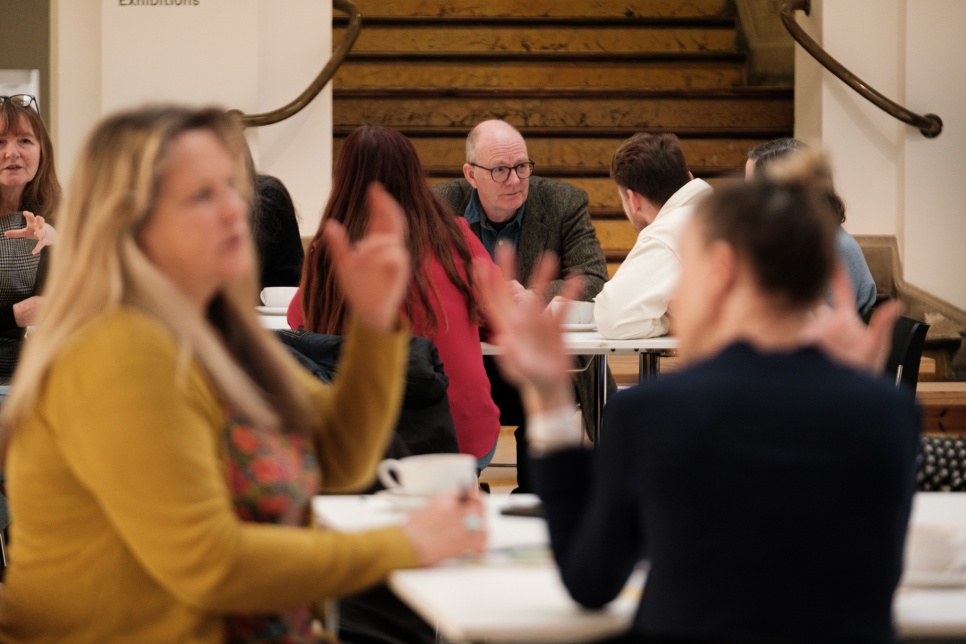
We want to develop the community network and relationships needed for this to work in the long term
We also want to facilitate conversations about what is working and what could be done differently.
The learnings from HARBWR will also be applied to “Sharing Hope”, a new health board-wide arts and health project for all staff groups. It aims to highlight the power of sharing stories and capturing COVID recovery, morale trauma and destigmatising mental health problems.
We will continue to explore the benefits of embedding arts in our services.
HARBWR builds on partnerships between Swansea Bay University Health Board, artists, art organisations, the third sector, and local councils in Swansea and Neath Port Talbot.
For more information, visit the HARBWR website.
